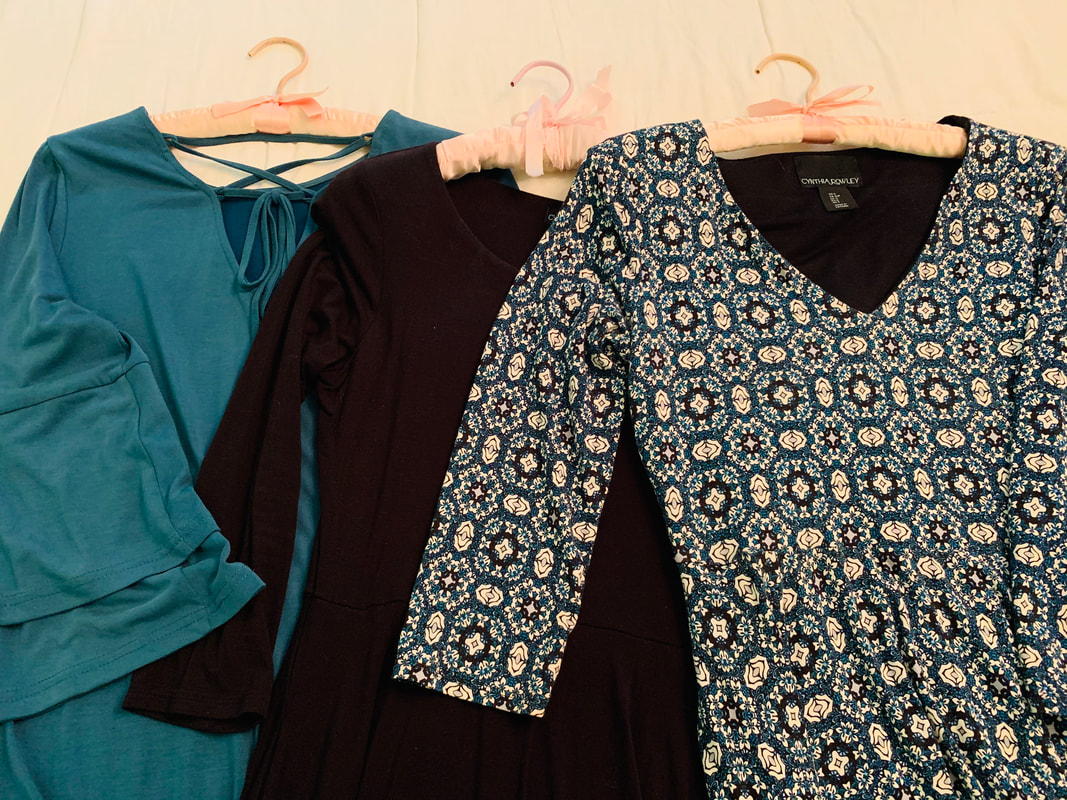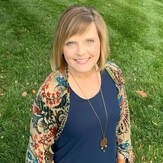The Big three of spiritual discernment Call me strange, but I actually like organizing my closet and transitioning from spring/summer clothes to fall/winter clothes, storing the off-season clothing in storage bags on a top shelf. I play music loudly (as I sing along) and take time weeding out items I haven’t worn in the last year. As I was putting away my summer dresses, I realized I did not wear a single one of them this year. Not one. It wasn’t because I didn’t want to; there simply had been nowhere for me to wear them. Suddenly, a wave of disappointment washed over me. Now, I’m happy in shorts and jeans, which is what I lived in this summer, so it wasn’t the fact that I hadn’t worn the dresses that was causing my disappointment. It was what they represented—all of the social gatherings, worship experiences, special occasions (including a vacation with friends, which I had bought a new sundress for), and professional interactions and events that hadn't happened. The dresses reminded me of all the in-person connections I’ve missed—and dearly. As I acknowledged the sadness I was feeling, tears began to form in my eyes. I knew it was time for “the big three.” This is the process at the heart of spiritual discernment that has been saving my life during this year of disappointments and challenges: The Big Three Awareness Understanding Response In a nutshell, the process of discernment helps us to live with our spiritual eyes open so we can become aware of, understand, and respond appropriately to what is happening within us. Discernment helps us to connect with God, listen, and choose what will lead to God’s deepening love and life in us. As we’re going about our everyday lives—working, cooking, eating, exercising, doing chores, having a conversation, or cleaning out a closet—we simply become aware, understand, and respond. The process of discernment helps us to live with our spiritual eyes open so we can become aware of, understand, and respond appropriately to what is happening within us. Here are a few helps for each step of the process: 1. Awareness. The first step is simply to notice what we are feeling and thinking. We might think of it as becoming aware of our interior experience with “open eyes.” In other words, we listen to our hearts and notice our thoughts. We become self-aware by taking time to slow down, notice, and listen to ourselves. Ask yourself: What is happening within me? 2. Understanding. The second step is thinking about the feelings and thoughts we have named and considering where they are leading us. Every thought and feeling either moves us toward God or away from God; either fosters connection with God or disconnection with God; either increases love or diminishes love. Ask yourself: Is this thought/feeling leading me toward God or away from God? Is it increasing or decreasing my sense of connection with God? Is it helping me to love God, others, and myself? What does God want me to understand about it? 3. Response. The final step is choosing to take action with spiritual wisdom. This involves prayerfully determining what will enable us to love God, others, and self (Matthew 22:37-39) and deepen the life of God within us. We consider what will bring benefit and not harm, choosing what helps and letting go of what does not. We intentionally respond in a way that will move us toward God and increase our experience of God's love. Ask yourself: What will move me toward God rather than away from God? What will help me to love God, others, and myself? What will bring benefit rather than harm to myself and others? The outcome of the discernment process is being able to choose what will lead us to a deepening experience of God and God’s love, which leads to healing and wholehearted living. It is built upon the foundation that God is love, God wants to be in relationship with us, and God is constantly communicating with us and showing us more of who God is and what God desires for us. The outcome of the discernment process is being able to choose what will lead us to a deepening experience of God and God’s love. As I stood in my closet, I became aware that I was incredibly sad—not only because of the loss of certain events and experiences, but also because of the missed connections with others. Feeling connected with others is both a basic need and a unique passion that God has given me. I feel most alive—knowing I’m living from my true self—when I connect deeply with others, heart to heart. As I named my sadness and the loss behind it, I had “open eyes” to notice an even deeper sadness related to a couple of other disappointments or losses, and I allowed myself to acknowledge, name, and feel each of those hurts as well. (Often the sadness we feel in a particular moment is connected with other hurts causing the same emotion. For deeper discernment, we can ask God to help us remember when we’ve felt that same emotion in the past, seeing what comes up.) Next I asked God to show me what I needed to understand about these disappointments—where they were leading me. I realized that one hurt was moving me toward self-pity, and another was opening the door to resentment. Rather than feeling any guilt or condemnation for those admissions, I felt only the warmth of God’s compassion for me in that moment of authenticity with the One who knows me best and loves me most. The question now was how would I respond? What would help me let go of what was harmful and embrace what would be beneficial? After some reflection, I sensed God inviting me to radically accept that all of God’s gifts are temporary, yet the love behind and within them continues. God uses all things, every gift, to grow us in love. This means that even our disappointments and losses can become gifts of love if we allow God to use them to deepen our life in God. Though this doesn’t eliminate the pain of the loss, it does lead to acceptance, healing, and wisdom (which usually is a process). Now sitting on the floor, I knew the action I needed to take was to remember and celebrate the gifts of love that I’ve been given through the people and things and experiences I was grieving. I chose to give thanks and to remind myself of particular moments and specific gifts of love I had received. It was a healing experience in an ordinary moment surrounded by shoes and hangers and dresses. Earlier I had considered whether or not to bother getting out my fall and winter dresses. Would I even wear them this season? Suddenly, with a burst of energy and a smile on my face, I knew what I wanted to do: hang up every dress with hope and expectation. Even if I don’t have the opportunity to wear them, they will remind me that God has given me the gift of passion for connecting with others; and although the expression of that passion may look different in this season, it will continue to grow me in the love of God. What are you missing this year? What disappointments or losses are causing you sadness, hurt, anger, or some other emotion? I encourage you to give “the big three” a try. It can be a quick process that takes only a few minutes, or it can be a longer period of reflection if you have the time. If desired, journaling can be a helpful aid in the process as you write your responses to the questions above and listen for God’s replies. Give yourself permission to go slowly and learn gradually. (You also might find the guidance of a spiritual director to be helpful.) Most of all, know that whatever arises as you pay attention to your inner experience, God looks upon you with great love. God’s desire is always to lead you into a deepening connection and experience of divine love—a love that heals and never fails.
0 Comments
Your comment will be posted after it is approved.
Leave a Reply. |
Hi, I'm Sally!
I'm passionate about connecting with God and connecting with people, offering spiritual encouragement and companionship. I'm so grateful to be on the journey with you as we walk with God together. subscribeArchives
July 2024
Categories
All
|
|
Copyright 2019 Sally Sharpe Spiritual Direction |
Proudly powered by Weebly
|


 RSS Feed
RSS Feed
